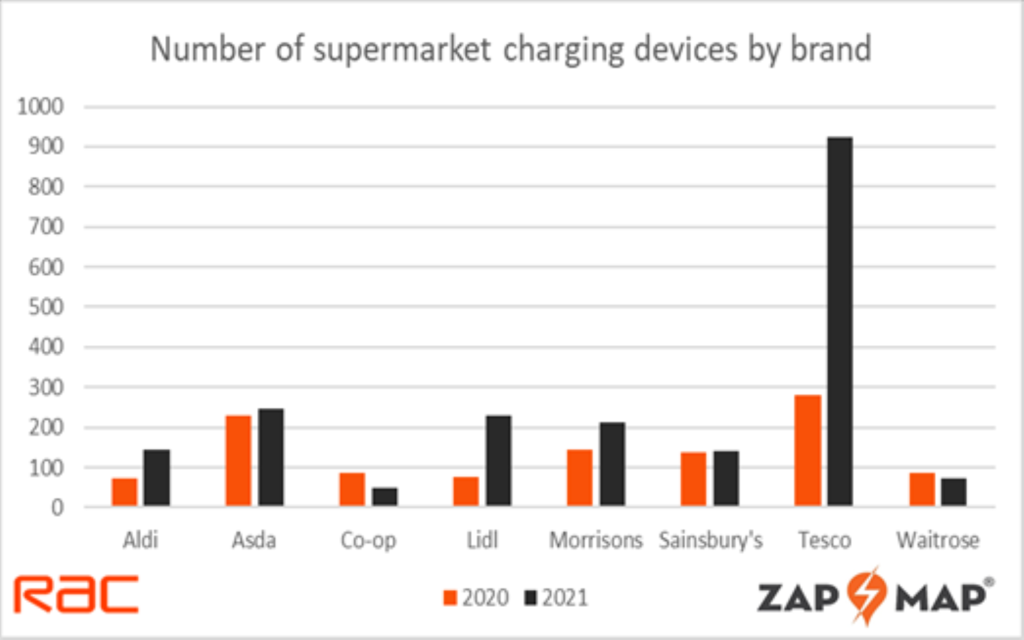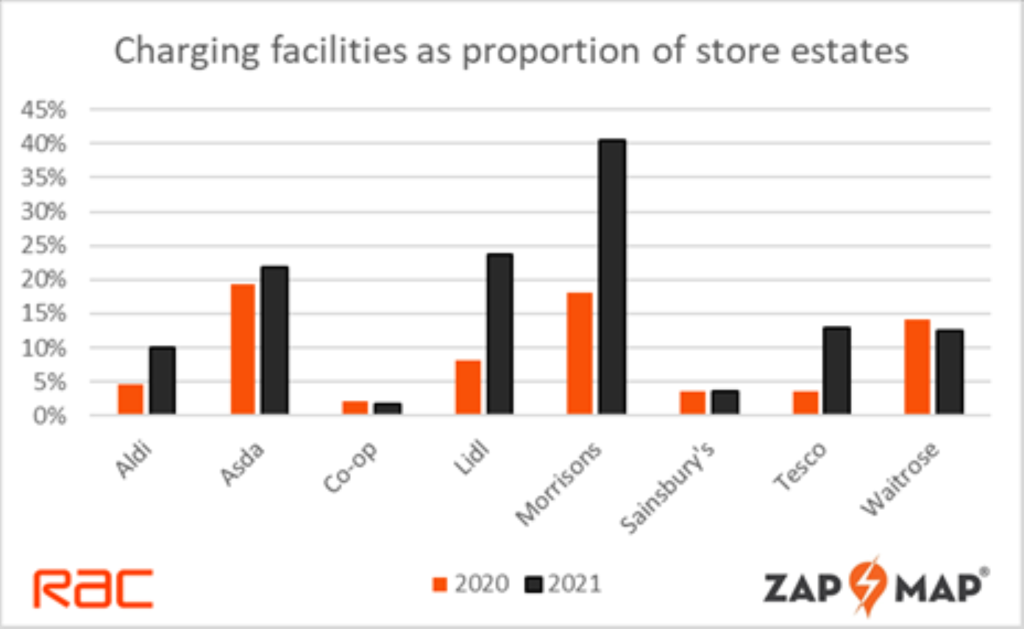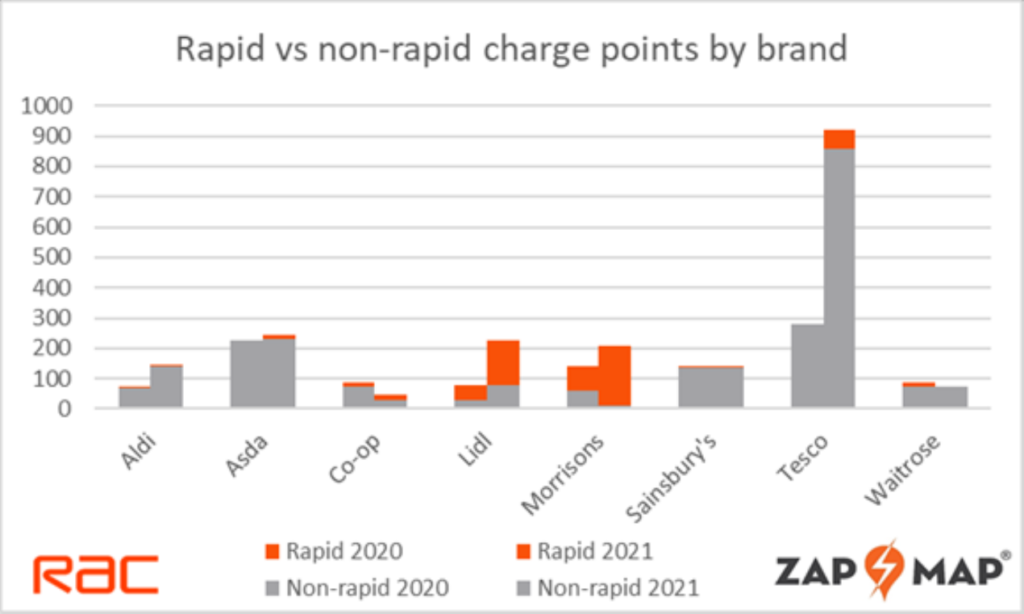Friday, 5. November 2021
The Government published its Net Zero Strategy ahead of COP26, including proposals for a zero-emission vehicle (ZEV) mandate forcing manufacturers to sell a certain proportion of electric vehicles (EVs).
The new net zero strategy aims to dramatically reduce greenhouse gas emissions (GHG) to reach a target of net zero by 2050.
It includes commitments around transport, including a zero-emission vehicle (ZEV) mandate, which it says will help deliver on the Government’s 2030 commitment to end the sale of new petrol and diesel cars, and 2035 commitment that all cars must be fully zero emissions capable.
It says that ministers will earmark a further £620 million for zero emission vehicle grants and EV infrastructure, including funding for local EV infrastructure, with a focus on local on street residential charging.
It is also allocating a further £350m of its £1 billion Automotive Transformation Fund (ATF) to support the electrification of UK vehicles and their supply chains.
Furthermore, it says it will expand zero emission road freight trials to include three zero emission HGV technologies at scale on UK roads to determine their operational benefits, as well as their infrastructure needs.
“A well-designed, flexible regulatory framework could help maintain or even increase this pace to ensure we deliver on our shared decarbonisation ambitions,” Mike Hawes, SMMT
In the forward for the new strategy, the Prime Minister, Boris Johnson, says: “This strategy sets out how we will make historic transitions to remove carbon from our power, retire the internal combustion engine from our vehicles and start to phase out gas boilers from our homes. But it also shows how we will do this fairly by making carbon-free alternatives cheaper.
“We will make sure what you pay for green, clean electricity is competitive with carbon-laden gas, and with most of our electricity coming from the wind farms of the North Sea or state-of-the-art British nuclear reactors we will reduce our vulnerability to sudden price rises caused by fluctuating international fossil fuel markets.”
The ZEV mandate will require a percentage of manufacturers’ new car and van sales to be zero emission each year from 2024.
ZEV mandate plans consulted on next year
The Government says it will consult on its ZEV mandate plans in early 2022. It will seek views on the design of the ZEV mandate (including uptake trajectories) and CO2 emissions regulation (as a backstop to ensure standards in the remainder of the fleet are maintained), and how and when targets will be set and enforced.
Gerry Keaney, chief executive of the British Vehicle Rental and Leasing Association (BVRLA), said: “This is uncharted territory for the automotive industry, and it is vital that any future ZEV mandate includes a review mechanism to assess potential market failures. The mandate must also take account of the very different uptake trajectories seen between cars and vans.”
The mandate, explains Keaney, will need to be backed up by some equally ambitious policy measures aimed at delivering EV demand.
He added: “We hope that next week’s Budget will see the Government commit to providing long-term financial support and tax incentives that will accelerate the roll-out of public and private charging infrastructure and absorb the price premium that many prospective electric vehicle users are still faced with.”
Industry figures show more than 650,000 new plug-in cars have been registered in the UK since 2010, and more than one in seven cars sold so far in 2021 had a plug.
Furthermore, there are now 20 EV models that come with a range of more than 200 miles compared to the early Nissan Leaf models that delivered 60 miles, and battery prices are little more than a tenth of what they were in 2010.
Mike Hawes, chief executive of the Society of Motor Manufacturers and Traders (SMMT), said: “A well-designed, flexible regulatory framework could help maintain or even increase this pace to ensure we deliver on our shared decarbonisation ambitions.”
He continued: “To ensure we have the reliable, accessible and nationwide charge point network this transition needs, however, requires a similar regulatory approach.
“The announcement of additional funds for on-street residential charging must energise much-needed private sector investment but consumers will only have confidence in the future if there are commensurate and binding requirements on the infrastructure sector.
“Combining regulatory commitments with financial ones is the key to a successful transition to zero-emission road transport.”
Paul Willcox, managing director of Vauxhall, also welcomed the ZEV mandate plan, which he says will provide clarity to the UK motor industry.
He said: “Vauxhall believes a ZEV mandate can work in the UK provided there are complimentary targets on the other key parts of the electric vehicle ecosystem which are key to driving Britain to a more sustainable transport infrastructure.
“With our Ellesmere Port plant set to become the first electric vehicle only factory within the Stellantis group, we look forward to working with the Government on the detail of how a ZEV mandate can be implemented and help support a sustainable vehicle marketplace in the UK.”
Vauxhall has committed to only selling fully electric new cars and vans from 2028 – seven years ahead of the government’s deadline of 2035.
Additional targeted action ‘may be be required’
The Government announced it would end the sale of new petrol and diesel cars and vans from 2030, last year.
The sale of new hybrid cars and vans that can drive a “significant distance” with no carbon coming out of the tailpipe will be allowed until 2035.
Government modelling suggests that, by 2050, total transport emissions, including international aviation and shipping, could need to drop by 76-86% compared to 2019, down to 23-40 MtCO2 e.
In the interim, it expects they could fall by 22-33% by 2030 and 46-59% by 2035, compared to 2019 levels.
These figures, it says, are based on an indicative transport sector pathway contributing to the whole-economy net zero and interim targets. Its potential pathway also indicates residual emissions from domestic transport could need to fall by around 34-45% by 2030 and 65-76% by 2035, relative to 2019 levels.
However, the net zero plan says that depending on progress in the sector, at some points additional targeted action may be be required, such as steps to reduce use of the most polluting cars and tackle urban congestion, to enable these targets to be met.
It says it will regularly review progress against its targets – publishing the next transport decarbonisation plan within five years – and continue to adapt and take further action if needed to decarbonise transport.
Iryna Kocharova head of sustainability at Lex Autolease, said: “We are pleased to hear that the Government has announced further plans to support the ambition outlined in the Transport Decarbonisation Plan. https://www.fleetnews.co.uk/news/latest-fleet-news/electric-fleet-news/2021/07/14/government-publishes-roadmap-to-decarbonising-transport-by-2050
“We welcome the commitment to investment in infrastructure and supply chain and would be supportive of a well-executed EV sales mandate that is carefully designed to sit alongside CO2 targets creating an overall scheme which is reasonable and proportionate.” By Graham Hill thanks to Fleet News
Share My Blogs With Others:
These icons link to social bookmarking sites where readers can share and discover new web pages.

























